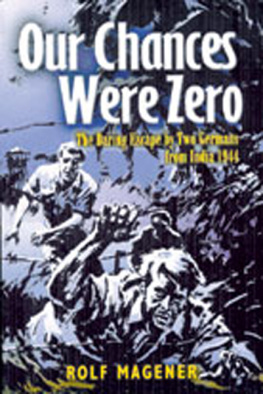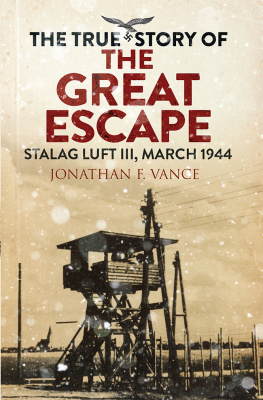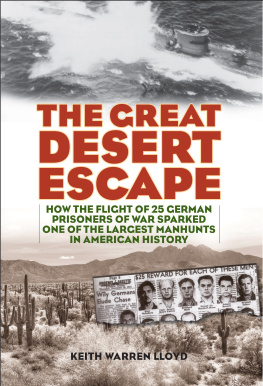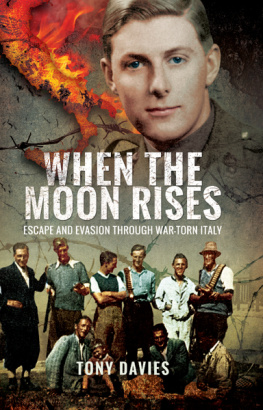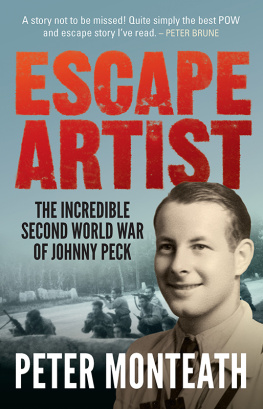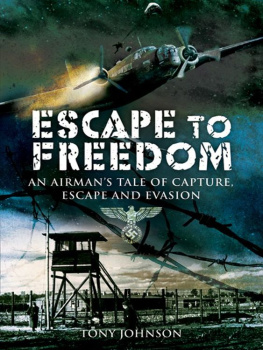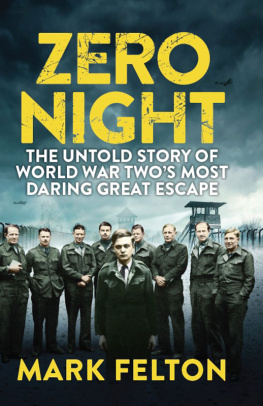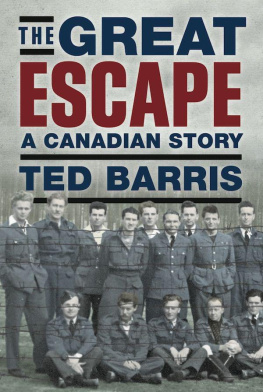Magener - Our Chances Were Zero: The Daring Escape by Two German Pows from India in 1944
Here you can read online Magener - Our Chances Were Zero: The Daring Escape by Two German Pows from India in 1944 full text of the book (entire story) in english for free. Download pdf and epub, get meaning, cover and reviews about this ebook. year: 2008, publisher: Pen and Sword, genre: Non-fiction. Description of the work, (preface) as well as reviews are available. Best literature library LitArk.com created for fans of good reading and offers a wide selection of genres:
Romance novel
Science fiction
Adventure
Detective
Science
History
Home and family
Prose
Art
Politics
Computer
Non-fiction
Religion
Business
Children
Humor
Choose a favorite category and find really read worthwhile books. Enjoy immersion in the world of imagination, feel the emotions of the characters or learn something new for yourself, make an fascinating discovery.
- Book:Our Chances Were Zero: The Daring Escape by Two German Pows from India in 1944
- Author:
- Publisher:Pen and Sword
- Genre:
- Year:2008
- Rating:4 / 5
- Favourites:Add to favourites
- Your mark:
- 80
- 1
- 2
- 3
- 4
- 5
Our Chances Were Zero: The Daring Escape by Two German Pows from India in 1944: summary, description and annotation
We offer to read an annotation, description, summary or preface (depends on what the author of the book "Our Chances Were Zero: The Daring Escape by Two German Pows from India in 1944" wrote himself). If you haven't found the necessary information about the book — write in the comments, we will try to find it.
Magener: author's other books
Who wrote Our Chances Were Zero: The Daring Escape by Two German Pows from India in 1944? Find out the surname, the name of the author of the book and a list of all author's works by series.
Our Chances Were Zero: The Daring Escape by Two German Pows from India in 1944 — read online for free the complete book (whole text) full work
Below is the text of the book, divided by pages. System saving the place of the last page read, allows you to conveniently read the book "Our Chances Were Zero: The Daring Escape by Two German Pows from India in 1944" online for free, without having to search again every time where you left off. Put a bookmark, and you can go to the page where you finished reading at any time.
Font size:
Interval:
Bookmark:

First published by Ullstein, Vienna, in 1954
Second German edition published in 1963, third edition 2000
First English language edition Prisoners Bluff
with translation by Basil Creighton,
Rubert Hart-Davis, London, 1954
Published in this format in 2001 by
Leo Cooper
an imprint of Pen & Sword Books Limited
47 Church Street
Barnsley, South Yorkshire
S70 2AS
Mrs Rolf Magener, 2001
A CIP record for this book is available from
the British Library
ISBN 0 85052 844 5
eISBN 978 1 78337 937 8
Typeset in 10.5/12.5pt Plantin
by Phoenix Typesetting, Ilkley, West Yorkshire
Printed in England by CPI UK
CONTENTS
INTRODUCTION
by
Jrgen Strube
Chairman of the Board of Executive Directors
BASF Aktiengesellschaft
Dr Rolf Magener would have celebrated his ninetieth birthday in August 2000. Publication of a new edition of his book was planned to honour the occasion. Sadly, Dr Magener died on 5 May 2000.
He rated the chances of a successful escape from the camp for civilian internees at Dehra Dun in India during the Second World War as zero. In spite of the odds against the enterprise, he was bold enough to try and escape. Magener overcame all the dangers he encountered on the journey and reached Tokyo. The adventure was a success, despite the fact that he never really believed it would come off!
My first meeting with Dr Magener was in autumn 1968. It led to my joining a comprehensive trainee programme in the Finance Department at BASF Aktiengesellschaft. For a lawyer like myself, the desire to start off my career in Finance and not Legal Affairs and Tax was not an escape. It was a risk, perhaps even an adventure. The desire to get out into the world and do something, the lust for creative opportunities, the drive to climb to the top were the things that motivated me.
If you had asked me back in 1968 how I rated my chances of one day becoming Chairman of the Board of Executive Directors at BASF, my reply would have been exactly the same: zero!
If the escape had not succeeded, Dr Magener would never have become Chief Financial Officer at BASF. In this capacity he played a leading role in shaping a phase of expansion that placed exceptional demands on finance and transparency. He was convinced that a company can only grow on the international stage if it recruits the next generation of managers from those individuals who like to create opportunities, yet limit risks. It then has to promote such people at the right time. His personality and cosmopolitan approach engendered a fascination that touched the lives of many people. His great gift was winning people over and creating a sense of loyalty in them.
Dr Magener was one of those people who possesses both the art of good fortune and the art of longevity. Golden Age Jesuit teacher Baltasar Graci has left us some helpful maxims on these two subjects in his Pocket Oracle:
The Art of being Happy. There are Rules of Good Fortune; and Happiness is not always Prosperous, in regard of a Wise Man. His Industry must sometimes help it forward. Some think it enough to stand at the Gate of Fortune in a good Posture, and to wait till she opens it. Others do better, and trusting to their Confidence or Merit advance farther on, so that by the cajoling of Fortune, one way or other, they obtain her.
The way to Live Long is to Live Well. There are two things which shorten the Life of Man: Folly and Wickedness. Some have lost it, because they knew not how to keep it; others, because they would not.
This book shows how these rules can be applied to real life, in exceptional situations, at the very boundaries of human endurance.
Dr Magener will live on in the hearts and minds of the many people who were close to him.
Chapter One
DEHRA DUN
Dehra Dun is a town in northern Hindustan. The frontier of Nepal is not far away, and the ice-clad summits of the Himalayas would be visible but for a long line of delicately modelled foothills which curtain them off and form its background.
Its tumultuous life surges up to the edge of silence: the life of India, seething, overflowing humanity, clamour of the bazaar, jostling of narrow streets, Hindu and Moslem, pungent eastern spices, holy cow-dung and lingams.
The British had a camp for internees outside the town, where the jungle met the inhabited world, on a site which had once been a tea-plantation and had partly gone back to jungle. There were rows upon rows of reed-thatched huts, with such low eaves that a murky gloom surrounded them. Beyond the shadow blazed the tropical sun. Vultures on the look-out for garbage perched in the branches of the few trees. There was nothing else in sight but shrubs, allotments, open drains, and long rows of latrines. No women or children were to be seen in this City of Despair, but the population showed great variety; besides Germans, who came from every country from Iraq to Hong Kong and were by far the most numerous, there were Italians, Bulgarians, Hungarians, Rumanians, Finns, all engaged in the common occupation of wasting time.
Whenever people are herded together, penned like cattle and fed like cattle, an immeasurable and inhuman boredom descends; but although a brooding vacancy marks the concentration camp, mere dullness sometimes conceives. Then when the time is ripe, there is a birth.
The moment I set eyes on Have I had the definite impression that he would be the right partner for an escape. We first met as opponents on the camp sports-ground, and after the event we retired to my hut to rest; it was a sultry afternoon during the monsoon, and we had better have kept still. He was dripping with sweat and sat down on a stool made out of packing-case wood under a self-planted grove of papaya trees, a tree the fruit of which bursts straight out of the stem like a young girls breasts. He was panting, but he laughed at the same time. His laugh, light-hearted with a note of daring and an undertone of scorn, was altogether typical of Heins von Have. I took him to be a little older than I; so he was, but we were both in our early thirties. There was something clear and firm and sharply defined about him which his hard blue eyes emphasized. We were each taking big gulps of tamarind juice out of large thick tumblers.
At the outbreak of war Have was engaged in trade in Batavia. The Dutch interned him, but when the Japanese landed in Java he was sent to India with all the other Germans in Indonesia. That is how he joined our crowd, who had been shut up ever since the 3rd of September, 1939. He was known for his daring escapes, and nothing pleased him better than to outwit the Indians and defy the English. When he arrived from the East Indies he was confined in a camp near Calcutta, and his first attempt at escape was made when he was being taken with a batch of other prisoners to a transit camp in the west of the country. He jumped from the moving train with another Hamburger, Hans Peter Hlsen. The attempt failed in spite of a very promising start; and so did the second, soon after. It was made with the same companion, who in the course of it lost his life.
Have gave his account of it in staccato sentences, in a manner equally nonchalant and precise. He stuck to the facts, and they were quite surprising enough. As he spoke he measured off his sentences in the air, and the cadence of his voice had a soft and dangerous quality.
Rotten show, that last time. Dont like to think of it now, he said to wind up his brief and rapid account.
I expect the death of the other fellow has about sickened you.
On the contrary. It makes me much more restless than ever.
Next pageFont size:
Interval:
Bookmark:
Similar books «Our Chances Were Zero: The Daring Escape by Two German Pows from India in 1944»
Look at similar books to Our Chances Were Zero: The Daring Escape by Two German Pows from India in 1944. We have selected literature similar in name and meaning in the hope of providing readers with more options to find new, interesting, not yet read works.
Discussion, reviews of the book Our Chances Were Zero: The Daring Escape by Two German Pows from India in 1944 and just readers' own opinions. Leave your comments, write what you think about the work, its meaning or the main characters. Specify what exactly you liked and what you didn't like, and why you think so.

